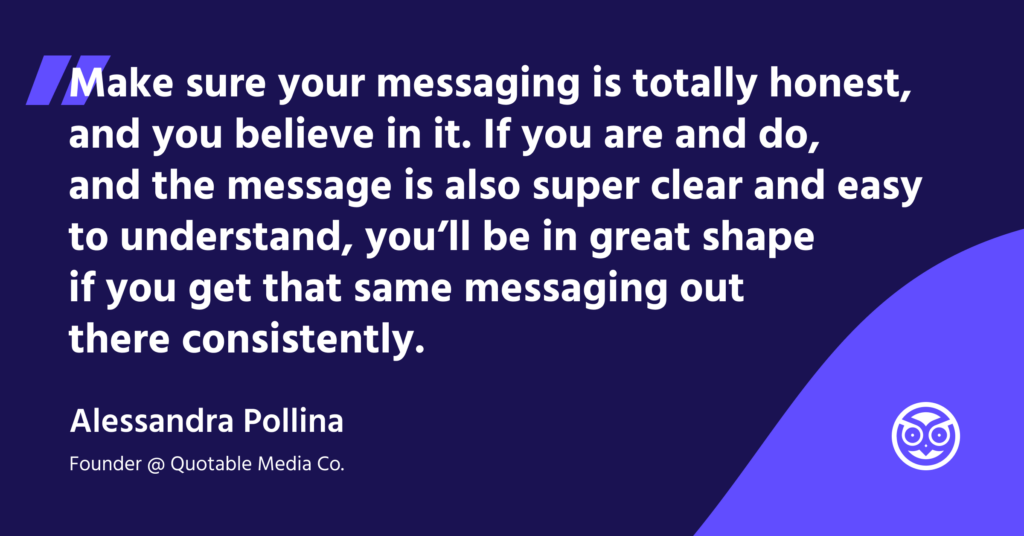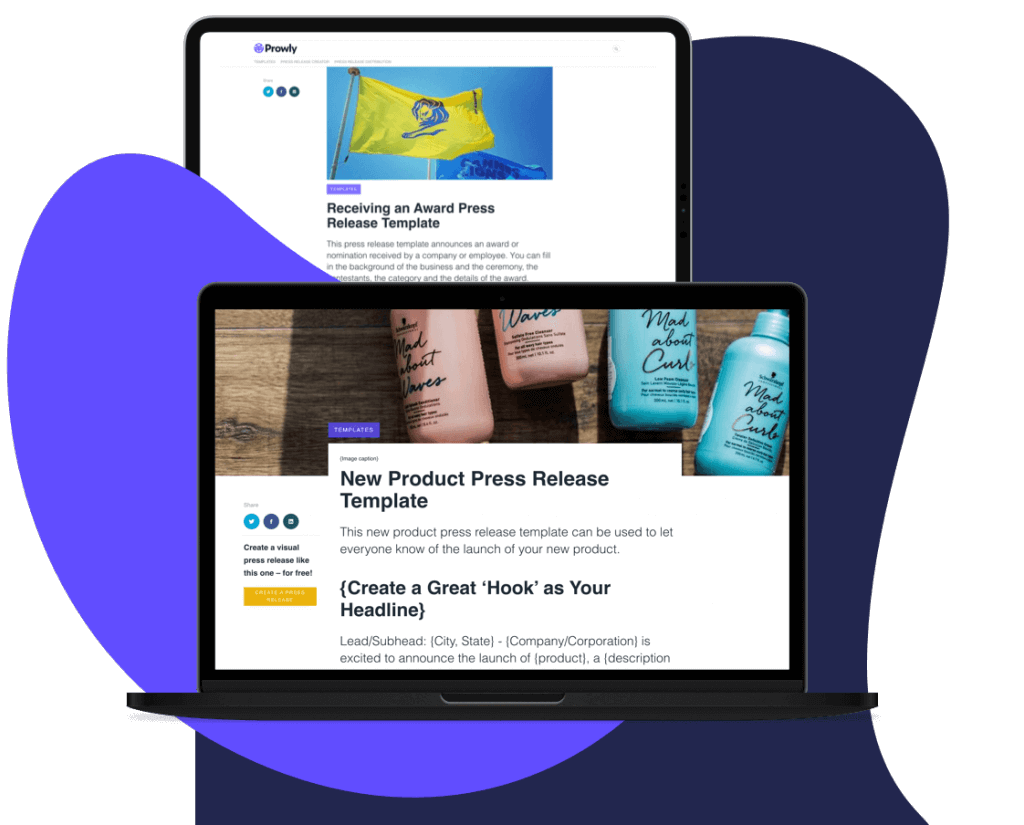The best guests for Prowly #PRChat are the ones who live, eat and breathe PR 24/7 and that’s why Alessandra Pollina is just perfect for us. She’s the driving force behind Quotable Media Co. and a passionate advocate of amplifying the voices of female entrepreneurs.
Follow her on Twitter for tons of interesting stories, especially introductions to women who are making waves in the business world and beyond. Here are Alessandra’s replies to our Prowly #PRChat questions.
What do you enjoy most about working with female entrepreneurs?
I find female entrepreneurs to be so inspiring, and I love how working with them helps motivate me to do more in my business as well. Women are so supportive and strong, and I love seeing what they’re creating. Women make things happen — the women I work with are so efficient and just figure out how to get from where they are to where they want to go without letting anything stop them, and I love to be around it and be a part of it.
What are the crucial elements of a cohesive visibility strategy?
Consistency and clarity in messaging, and 100% belief in that messaging. Media and audiences can tell if you’re not standing behind your message fully, or you’re trying to make something seem bigger/more important than it really is.
Make sure your messaging is totally honest, and you believe in it. If you are and do, and the message is also super clear and easy to understand, you’ll be in great shape if you get that same messaging out there consistently. If any of those pieces aren’t aligned, everything will be much harder, and it won’t have that cohesive quality that is so important in having the impact you want.

What is a commonly held belief in public relations that you passionately disagree with?
There is a lot of misconception around PR being such a cutthroat, stressful field where you have to work 24/7 and be constantly ‘on’ and available in order to be successful and get ahead. While there are client industries and instances where that can certainly be the case (if you work in crisis comms especially), I believe that in most industries and cases and agencies you should be able to have a healthy work-life balance while building a successful career in PR.
What’s a recent thing you tried in your company that you were surprised by the result of?
I believe in work-life balance, and working smarter. In the time since the pandemic hit, we have instituted a four-day workweek, which has worked really well for us.
Of course, if major media opportunities come up on Friday we’ll still jump in and handle it right away, but for the most part, Fridays are the quietest day for media (we never pitched on Friday anyway) and unless we have an event or a weekend news segment coming out, we have been able to successfully avoid work hours on Fridays.
I still tend to use the time for other projects, like recording my podcast and editing our magazine, or strategic planning, but for the most part and for the rest of the team, client work happens Monday through Thursday.
What skills do you think PRs need to be successful long-term?
Likeability. Clients, media, and other contacts have to like you in order to want to work with you.
Also, storytelling – since you have to be able to create the story, even where one may not be obvious, and you have to be able to communicate it in a way that makes a writer want to cover it. I would also add having a drive for consistent improvement.
PR can be tough. There’s a lot of rejection or at least non-acceptances that come with the job, and you have to be willing to constantly work toward getting better at your craft. You’ll get burned out and discouraged if you don’t start securing better and better coverage, and in order to do that, you have to consistently work toward being better and better as a PR person.
What trends are you seeing in PR that you’re excited about?
The importance of data. PR is notoriously tough to quantify and track results for in real-time because as we all know, someone may see an article you secured yesterday three years from now and become the biggest customer/investor/fan of your client, long after you’re even working for them anymore.
But, there is a lot we can in fact do these days when it comes to data and really informing our strategies and outreach with real data. Whether it’s tracking increased website traffic the day an article goes live, being able to track email opens and coverage rates, there are all kinds of tech tools now that makes it easier than ever to track immediate impacts of your PR efforts and develop or update them accordingly.
What’s the best advice you can give PR students and interns?
Get all the experience you can. There’s really nothing like experience when it comes to pitching and crafting stories with media. Every time I create a pitch and work with a writer I learn something new about what will be most effective, new strategies on how to work with them and get new ideas on ways to build a story for next time.
There’s just so much that comes from actually doing it, so try to get chances to practice wherever you can — internships, volunteering on a PR project for a nonprofit or school group, or even creating your own project that you can then use PR to promote. Having examples of quality media pieces that you secured will be the best way to get your first or next job.
Also, be friendly and likable. You’re often asking for something in PR, but people like to work with and help people they like, and you’re usually offering something as well. Make sure you let them feel that they may be getting something from the relationship too! Don’t forget to speak to them like a real person, and find real ways to connect and be memorable.

